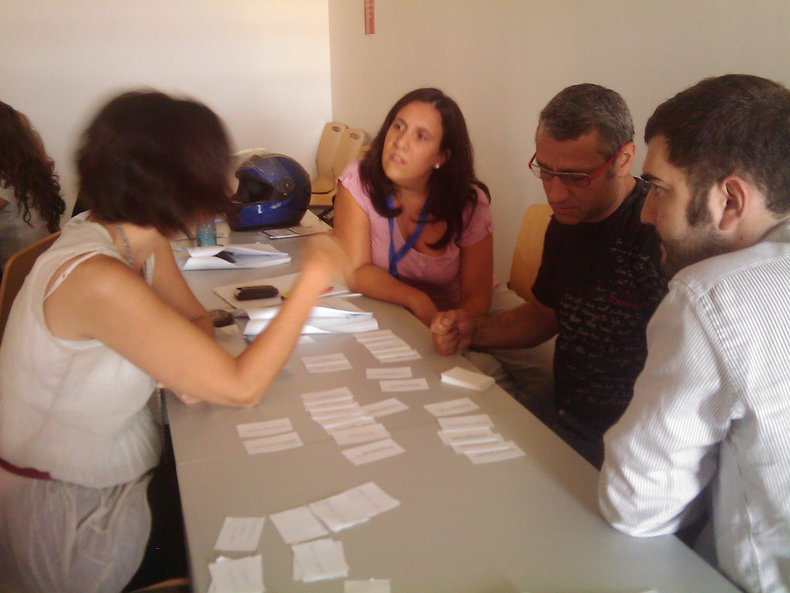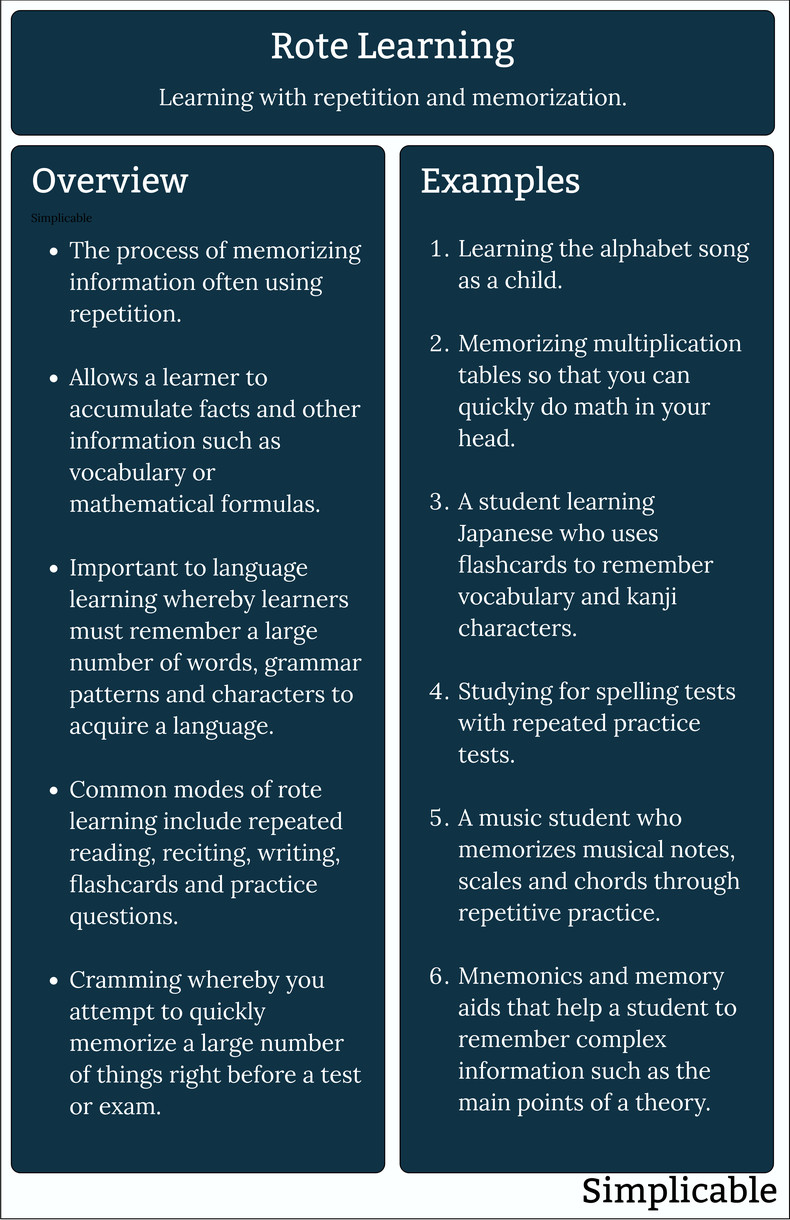
Spelling Drills
Learning to spell by repeatedly trying to spell a list of words and looking at the answer when you're wrong.Multiplication Tables
It is a common practice to remember the answers for 0x0 through 12x12 so that these answers can be pulled up without any thought. In some professions, it may be useful to remember far larger sets of multiplication tables so that you can understand numerical situations at speed.Facts
Using repetition to remember a set of facts such as the state capitals of the United States. There are certain facts that you are simply expected to know in a society, culture or profession. Rote learning is useful for this purpose. You may eventually learn the state capitals by reading the news and discussing geography but this may take far longer than simply memorizing the list.Cramming
Preparing for a test by memorizing information and practicing problems. For example, students commonly use flashcards to remember information before a test.Language Lessons
When speaking, listening, writing or reading a language, you either remember a word or grammar pattern or you don't. As such, memorizing words and grammar through repetition is a basic approach to learning a second language. Language lessons commonly introduce vocabulary and grammar patterns and then proceed to a series of exercises that repeats this information several times in different scenarios. Flashcards are also useful for learning a second language.Ear Training
A fundamental component of music education whereby individuals learn to identify pitches, intervals, melody, chords and rhythms. This benefits from rote learning whereby you repeatedly try to identify things and are told if you are right.Visual Recognition
Visual recognition such as an art appreciation class that requires students to be able to identify an artistic style or artist. This typically requires viewing many examples of the style and works of an artist.Machine Learning
Most machine learning algorithms that underpin artificial intelligence resemble a process of rote learning whereby predication models are improved by viewing many examples of things.Benefits of Rote Learning
Rote learning makes sense when you want to memorize information quickly. If you give students a test that requires them to remember facts, they will invariably use rote learning techniques because it is simply the most efficient way to score well on the test. Memorization is often portrayed as mindless and worthless but knowing things is actually useful in the real world. For example, if you don't know if Germany is a country or city, people may doubt your general intelligence.Educators are sometimes purists who adapt one method and reject all others. Rote learning probably won't make you more creative, logical or social. As such, it doesn't make sense as an exclusive method of education. However, it does play a role as an efficient means to remember things.Cramming for exams by memorizing many facts is a type of adversity that may build character, personal resilience and work ethic. It is also an excellent simulation of real world situations where you suddenly need to know many things about a topic but might not need this information a week later. For example, a salesperson who remembers a list of aviation industry terms before a meeting with a major customer in that industry.Summary
Rote learning is the process of memorizing information. This often involves some type of repetition such as repeated flashcards, practice questions, reading, writing or reciting.
| Overview: Rote Learning | ||
Type | ||
Definition | The practice of memorizing things with a process of repetition. | |
Related Concepts | ||

































